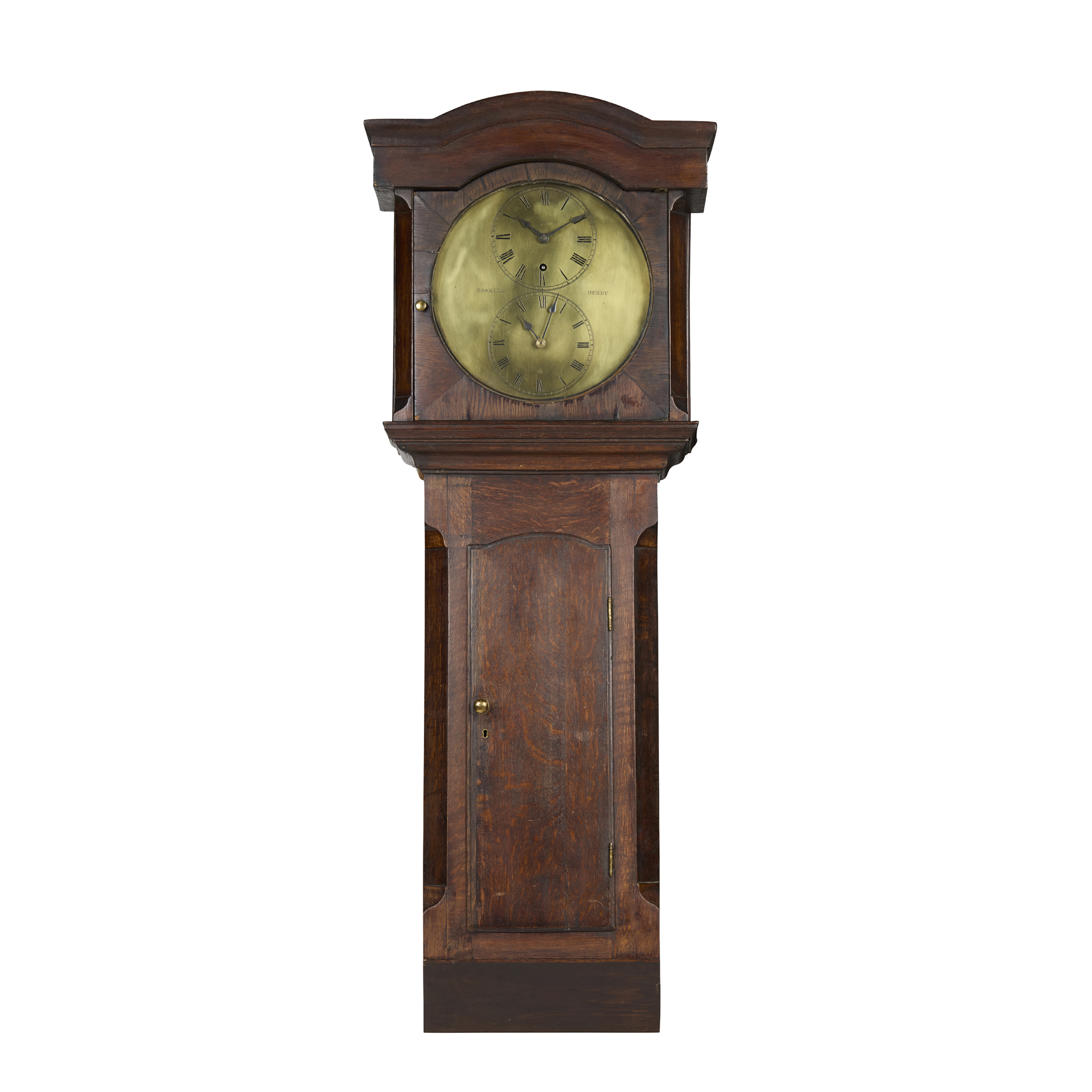VERY RARE EARLY VICTORIAN DOUBLE DIAL 'MILL' WALL CLOCK, BY ROSKELL, DERBY
CIRCA 1855-1862
Estimate: £1,000 - £1,500
Auction: Day 1 - Wed 14th May from 10am | Lots 1 to 313
Description
the 13 inch circular brass double dials both with Roman numerals, engraved ROSKELL/ DERBY, the dark stained oak case with arched moulded pediment, the dial flanked by canted angles, the short trunk with a moulded arched door and also flanked by canted angles, the upper dial with a single train timepiece movement, the lower dial operated by revolving gearing from the backplate
Dimensions
139cm high, 52cm wide
Footnote
This double dialled clock was made specifically for the purpose of recording the operational running time of mill machinery. The rear of the lower movement has a backplate which would have been connected (via take-off work geared to revolve once a minute) to the mechanism of the mill. The dial would then index the hours that the machinery would have been running throughout that day. The upper dial is for actual mean solar time driven by a separate single train and pendulum. Theoretically if the mill had been running at optimum capacity at all times the indicated time for that day would have been correct, and both the upper 'time' and lower 'mill' dials would be synchronised at the end of the working day. Naturally, in practice, there will have been times when the machinery would have been inoperative (or running slow), hence by the end of the day the 'mill time' would have been lagging behind. By recording the difference between the two the amount of 'running time' lost would have been obtained. Generally, it appears that very few 'mill clocks' seem to have survived although John Robey mentions a complete example by Whitehurst made for Green's Mill, Derby, as well as two other similar incomplete examples. Unfortunately, it is not known for whom/which mill the current lot was made, however when first put to use it was probably deemed an invaluable tool bearing in mind the high degree of competition that would have existed between the numerous potteries and mills operating in and around Derbyshire and Staffordshire at the middle of the 19th century.
John Whitehurst FRS founded his Derby firm in 1737 and on his death in 1788 the business passed to his nephew John Whitehurst II (1761-1834) who in 1809 took into partnership his own son, John Whitehurst III, trading as John Whitehurst & Son until 1834. John Whitehurst III continued the firm until his own death in 1855 after which it was run by Roskell of Liverpool until closed in 1862.

